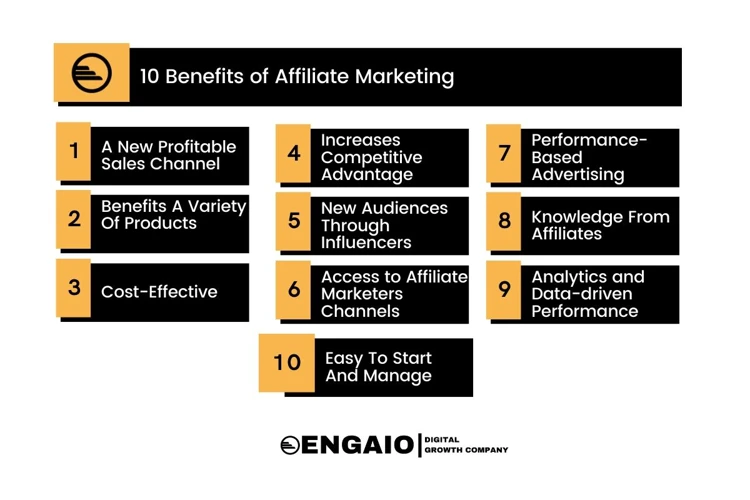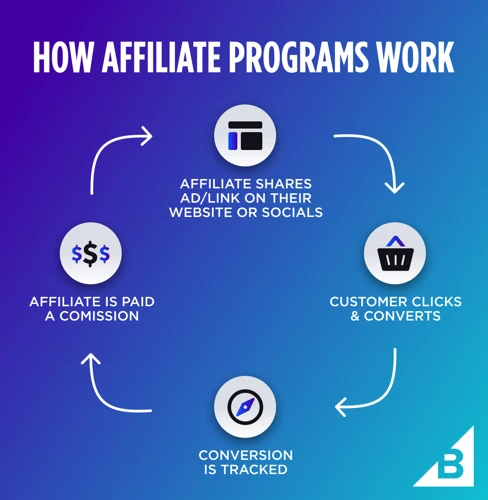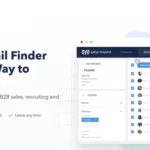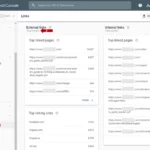When it comes to affiliate marketing, one of the key factors to consider is the affiliate commission rates. The commission rate is the percentage of the sale that affiliates earn as their commission for promoting your products or services. It is important to set a commission rate that is both attractive to affiliates and financially feasible for your business.
The Benefits of Affiliate Marketing

- Cost-Effective Advertising: One of the major benefits of affiliate marketing is its cost-effectiveness. Unlike traditional advertising methods that require large upfront investments, affiliate marketing allows you to only pay for the desired results. You can choose to pay affiliates a commission only when they successfully drive a sale or generate a lead. This means that you are not wasting your advertising budget on ineffective campaigns and can maximize your return on investment.
- Performance-Based Payments: With affiliate marketing, you only pay affiliates when they deliver the desired results, such as a sale or a lead. This performance-based payment model ensures that you are only paying for actual conversions rather than just impressions or clicks. It motivates affiliates to actively promote your products or services and gives them an incentive to drive quality traffic to your website.
These benefits make affiliate marketing an attractive option for businesses of all sizes. It provides a cost-effective and performance-based approach to advertising, allowing you to reach a wider audience and increase your revenue without breaking the bank. So, if you’re looking for an effective way to promote your products or services, affiliate marketing might be the right choice for you.
1. Cost-Effective Advertising
| Cost-Effective Advertising: |
| Affiliate marketing offers a cost-effective advertising solution for businesses. Unlike traditional advertising methods that require upfront investments, affiliate marketing allows businesses to only pay for the desired results. This means that you can choose to pay affiliates a commission only when they successfully drive a sale or generate a lead. By utilizing this performance-based payment model, you can ensure that your advertising budget is being spent effectively and efficiently. It eliminates the risk of spending money on campaigns that may not yield the desired results. Additionally, with affiliate marketing, you have the opportunity to reach a wider audience without incurring additional costs, as affiliates promote your products or services to their own networks. This can significantly increase your brand visibility and customer reach without the need for expensive advertising campaigns. If you’re looking for cost-effective advertising strategies, consider incorporating affiliate marketing into your overall marketing mix. |
2. Performance-Based Payments
Performance-based payments are a key aspect of affiliate marketing that sets it apart from traditional advertising methods. With affiliate marketing, you only pay affiliates when they deliver the desired results, such as a sale or a lead. This payment model ensures that you are only paying for actual conversions rather than just impressions or clicks. It motivates affiliates to actively promote your products or services and gives them an incentive to drive quality traffic to your website. By aligning payment with performance, you can effectively manage your advertising budget and ensure that you are getting a return on your investment. This performance-based approach also encourages affiliates to continually optimize their marketing efforts, which can lead to increased sales and revenue for your business. So, if you’re looking for a cost-effective and results-driven advertising strategy, affiliate marketing with its performance-based payments is worth considering.
The Cost Components of Affiliate Marketing

- Affiliate Network Fees: When participating in affiliate marketing, you may have to pay fees to join an affiliate network. These networks act as intermediaries between advertisers and affiliates, providing a platform for tracking sales and managing payments. The fees can vary depending on the network and the services they offer.
- Affiliate Commission Rates: As an advertiser, you will need to set commission rates for your affiliates. This is the percentage of the sale that you are willing to pay to the affiliate for driving the conversion. The commission rates can vary depending on the industry, product type, and competition. It’s important to research and set competitive commission rates to attract quality affiliates.
- Marketing Tools and Resources: To effectively run an affiliate marketing campaign, you may need to invest in marketing tools and resources. This can include email marketing software, landing page builders, social media management tools, and analytics platforms. These tools can help you track and optimize your campaigns, but they may come with additional costs.
- Website Development and Maintenance: Your website is an essential component of your affiliate marketing strategy. You will need to invest in website development and maintenance to ensure that your site is user-friendly, mobile-responsive, and optimized for conversions. This may involve hiring web developers, purchasing website themes or plugins, and ongoing maintenance costs.
- Content Creation and Promotion: Creating high-quality content is crucial for attracting and engaging your target audience. You may need to invest in content creation, such as hiring writers or graphic designers, or creating the content yourself. Additionally, promoting your content through various channels, such as social media or search engine optimization, may require additional costs.
These cost components are important to consider when budgeting for your affiliate marketing campaign. By understanding these expenses, you can better plan and allocate your resources to ensure a successful and profitable affiliate marketing strategy.
1. Affiliate Network Fees
| Affiliate Network Fees: |
| Affiliate networks act as intermediaries between affiliates and advertisers. They provide a platform where affiliates can find and join affiliate programs, access marketing materials, and track their performance. However, these networks charge fees for their services, which can vary depending on the network and the specific program you choose. Some networks charge a one-time setup fee, while others have monthly or annual subscription fees. Additionally, some networks may also deduct a percentage of your affiliate commissions as a transaction fee. It’s important to carefully evaluate the fees associated with different affiliate networks and consider their value in terms of the support and resources they provide. By choosing the right network, you can ensure that you have access to a wide range of affiliates and maximize your chances of success in your affiliate marketing efforts. |
2. Affiliate Commission Rates
Affiliate Commission Rates
When it comes to affiliate marketing, one of the key factors to consider is the affiliate commission rates. The commission rate is the percentage of the sale that affiliates earn as their commission for promoting your products or services. It is important to set a commission rate that is both attractive to affiliates and financially feasible for your business.
There is no standardized commission rate in affiliate marketing, and it can vary widely depending on the industry, product type, and competition. Generally, commission rates range from 5% to 30%, but some programs offer even higher rates for high-ticket or recurring products.
When determining the commission rate, it’s crucial to strike a balance between enticing affiliates to promote your products and maintaining profitability for your business. Offering a higher commission rate can attract more affiliates and motivate them to put in more effort in promoting your products. However, it’s important to ensure that the commission rate aligns with your profit margins and allows your business to remain sustainable.
Additionally, it’s worth considering the commission structure and whether you want to offer a flat rate commission or a tiered commission structure. Flat rate commission offers a fixed percentage for every sale, while a tiered commission structure rewards affiliates with higher rates as they achieve certain sales milestones.
By analyzing your profit margins and conducting competitor research, you can determine an appropriate commission rate that strikes a balance between enticing affiliates and maintaining profitability. It’s important to regularly review and adjust your commission rates to stay competitive in the market and attract top-performing affiliates.
3. Marketing Tools and Resources
When it comes to affiliate marketing, having the right marketing tools and resources is crucial for success. Here are some key aspects to consider:
- Affiliate Tracking Software: Investing in a reliable affiliate tracking software is essential for managing your affiliate program effectively. This software allows you to track affiliate referrals, monitor conversions, and calculate commissions accurately.
- Marketing Analytics: Analytics tools provide valuable insights into your affiliate marketing campaigns. They help you track performance metrics, understand customer behavior, and optimize your marketing strategies for better results.
- Keyword Research Tools: Keyword research is vital for optimizing your content and driving organic traffic to your website. Tools like keyword research tools help you identify high-volume keywords related to your niche, enabling you to create content that ranks well in search engine results.
- Social Media Management Tools: Social media platforms play a significant role in affiliate marketing. Using social media management tools, you can schedule posts, engage with your audience, and track the performance of your social media campaigns.
- Email Marketing Software: Building an email list is an effective way to nurture leads and generate sales. Email marketing software allows you to automate email campaigns, segment your audience, and analyze email performance.
Investing in these marketing tools and resources will help streamline your affiliate marketing efforts, improve your campaign performance, and ultimately, boost your revenue. So, make sure to allocate a portion of your budget to acquiring and utilizing these essential tools.
4. Website Development and Maintenance
Website development and maintenance are crucial components of a successful affiliate marketing strategy. Building a professional and user-friendly website is essential to attract and retain visitors, increase conversions, and generate revenue. When considering the cost of website development and maintenance for affiliate marketing, there are several factors to consider.
Firstly, you need to invest in a reliable hosting service that can handle the traffic and provide a secure environment for your website. Hosting costs can vary depending on the provider and the package you choose.
Secondly, you may need to hire a web developer or designer to create an appealing and functional website. The cost of hiring a professional can vary depending on their experience and expertise.
Additionally, ongoing website maintenance is necessary to ensure that your website is always up-to-date, secure, and optimized for search engines. This may include regular updates, security measures, and performance optimization. You can either do this yourself if you have the technical skills or hire a professional to handle it for you.
It’s also important to consider the cost of any website plugins or tools that you may need to enhance your website’s functionality. These could include SEO plugins, analytics tools, or email marketing software.
The cost of website development and maintenance for affiliate marketing can vary depending on your specific needs and requirements. It’s important to budget for these expenses to ensure that your website is in top shape and can effectively support your affiliate marketing efforts.
5. Content Creation and Promotion
When it comes to affiliate marketing, creating high-quality content is crucial for attracting and engaging potential customers. Content creation involves developing blog posts, articles, videos, or social media content that promotes the products or services you are affiliated with. This content should be informative, engaging, and aligned with the interests of your target audience. Additionally, promoting your content through various channels is essential for reaching a wider audience and driving traffic to your affiliate links. This can include sharing your content on social media platforms, optimizing it for search engines, or even utilizing paid advertising campaigns. By investing time and effort into content creation and promotion, you can increase your chances of attracting potential customers and earning higher commissions. If you want to learn more about driving traffic to your content, check out our article on “How to Get Traffic on YouTube”.
Calculating Your Affiliate Marketing Budget
- Determine Your Marketing Objectives: Before calculating your affiliate marketing budget, it’s important to determine your marketing objectives. Are you looking to increase brand awareness, drive sales, or generate leads? Understanding your goals will help you allocate your budget effectively and choose the right affiliate programs and strategies.
- Research Affiliate Networks and Programs: Researching different affiliate networks and programs is crucial in calculating your budget. Look for reputable networks that align with your niche and have a track record of successful affiliate partnerships. Consider factors such as commission rates, cookie duration, and the types of products or services offered.
- Estimate Affiliate Commission Rates: Affiliate commission rates vary depending on the network and program. Some may offer a fixed commission per sale, while others may offer a percentage of the sale amount. Estimate the average commission rate based on your research and consider the potential sales volume to calculate the affiliate commission expenses.
- Consider Marketing Tools and Resources: To effectively promote your affiliate products or services, you may need to invest in marketing tools and resources. This can include email marketing software, social media management tools, or paid advertising platforms. Consider the costs of these tools and factor them into your budget.
- Factor in Website Development and Maintenance Costs: Your website plays a crucial role in your affiliate marketing efforts. Consider the costs of website development, hosting, and maintenance. If you don’t have a website yet, you’ll need to budget for its creation. If you already have a website, factor in the ongoing maintenance and optimization expenses.
- Plan for Content Creation and Promotion Expenses: Creating high-quality content is essential for successful affiliate marketing. Factor in the costs of content creation, including hiring writers or designers if necessary. Additionally, consider the expenses associated with promoting your content, such as social media advertising or influencer collaborations.
By carefully considering these factors, you can calculate your affiliate marketing budget more accurately. It will help you allocate your resources effectively and ensure that you have a well-rounded strategy in place to achieve your marketing objectives. So, take the time to plan and budget for your affiliate marketing efforts to maximize your chances of success.
1. Determine Your Marketing Objectives
Determine Your Marketing Objectives: Before diving into affiliate marketing, it’s essential to determine your marketing objectives. What are you hoping to achieve through affiliate marketing? Are you looking to increase sales, generate leads, or drive website traffic? Defining your goals will help you create a targeted affiliate marketing strategy and allocate your budget accordingly. For example, if your objective is to increase sales, you may want to focus on affiliates with a proven track record of driving conversions. On the other hand, if your goal is to boost brand awareness and website traffic, you might consider working with affiliates who have a strong online presence, such as popular bloggers or influencers. By clearly defining your marketing objectives, you can align your affiliate marketing efforts with your overall business goals and set realistic expectations for your campaign’s success. So, take the time to evaluate your objectives and determine what you hope to achieve through affiliate marketing. This will serve as a foundation for planning and budgeting your affiliate marketing campaign effectively.
2. Research Affiliate Networks and Programs
When it comes to affiliate marketing, choosing the right affiliate networks and programs is crucial. Here are some key steps to help you research and select the most suitable options for your business:
- Identify Your Niche: Start by identifying your target audience and the niche market you want to focus on. Look for affiliate networks and programs that cater to your specific niche, as this will increase the likelihood of finding relevant products or services to promote.
- Research Affiliate Networks: Conduct thorough research on different affiliate networks. Look for networks that have a good reputation, a wide range of products or services, and a user-friendly interface. Consider factors such as the network’s commission rates, payment terms, and available promotional tools.
- Explore Affiliate Programs: Once you have identified potential affiliate networks, delve deeper into the individual affiliate programs they offer. Look for programs that align with your niche and have reputable merchants with high-quality products or services. Check the program’s commission structure, payment schedule, and any additional incentives or bonuses.
- Read Reviews and Testimonials: Take the time to read reviews and testimonials from other affiliates who have experience with the networks and programs you are considering. Their insights can provide valuable information about the level of support, payment reliability, and overall satisfaction with the network or program.
- Consider the Program Requirements: Before joining an affiliate program, carefully review its requirements. Some programs may have specific criteria such as minimum traffic requirements, content quality standards, or geographic restrictions. Ensure that you meet these requirements before signing up.
By thoroughly researching and selecting the right affiliate networks and programs, you can maximize your chances of success in affiliate marketing. Remember to choose networks and programs that align with your niche, offer competitive commission rates, and provide the necessary support and resources to help you achieve your marketing goals.
3. Estimate Affiliate Commission Rates
When estimating affiliate commission rates, it’s important to consider the industry standards and the specific affiliate programs you plan to join. Commission rates can vary widely depending on the products or services being promoted. Some affiliate programs offer a flat rate commission for each sale, while others offer a percentage of the total sale amount. Researching different affiliate programs and their commission structures can help you estimate the potential earnings from your affiliate marketing efforts. Additionally, it’s crucial to consider the average order value and conversion rates for the products or services you plan to promote. Higher-priced items with higher conversion rates can result in higher commission earnings. You can also negotiate commission rates with individual affiliate programs to ensure a mutually beneficial agreement. By understanding the affiliate commission rates in your niche and selecting the right programs, you can estimate the potential earnings and factor them into your affiliate marketing budget.
4. Consider Marketing Tools and Resources
When calculating the cost of affiliate marketing, it’s important to consider the marketing tools and resources that you will need to effectively promote your products or services. Here are some key factors to consider:
- Affiliate Tracking Software: To track the performance of your affiliates and accurately calculate their commissions, you will need affiliate tracking software. This software allows you to monitor clicks, conversions, and other metrics to measure the success of your affiliate campaigns.
- Marketing Collateral: Providing your affiliates with high-quality marketing materials, such as banners, product images, and promotional content, can help them effectively promote your products or services. Investing in the creation of these marketing collateral can enhance the visibility and credibility of your affiliate program.
- Email Marketing Services: Email marketing is a powerful tool for nurturing leads and converting them into customers. Consider investing in an email marketing service that allows you to manage and automate your email campaigns, segment your audience, and track the success of your email marketing efforts.
- Social Media Management Tools: Social media platforms are a great way to reach and engage with your target audience. Investing in social media management tools can help you schedule and automate your social media posts, track engagement metrics, and efficiently manage your social media presence.
- Keyword Research Tools: To optimize your website and content for search engines, keyword research tools are essential. These tools help you identify high-volume keywords that your target audience is searching for, allowing you to optimize your content and drive organic traffic to your website.
Considering these marketing tools and resources is crucial for running a successful affiliate marketing program. By investing in the right tools, you can effectively manage and optimize your affiliate campaigns, ultimately driving more traffic and conversions. To learn more about driving traffic to your website, check out our article on how to get traffic on YouTube.
5. Factor in Website Development and Maintenance Costs
When calculating the costs of affiliate marketing, it’s important to factor in the expenses associated with website development and maintenance. Building and maintaining a professional and user-friendly website is crucial for the success of your affiliate marketing efforts. Here are some key considerations to keep in mind:
Website Design and Development: Creating an engaging and visually appealing website may require the services of a professional web designer or developer. The cost of website design and development can vary depending on the complexity of your site and the specific features and functionalities you require. It’s important to budget for these upfront costs to ensure your website provides a positive user experience.
Domain Name and Hosting: Registering a domain name and securing reliable hosting services are ongoing expenses for maintaining a website. The cost of a domain name can vary depending on the domain extension and availability. Hosting fees will depend on the hosting provider and the specific hosting package you choose.
Website Maintenance and Updates: Keeping your website up to date with fresh content and regular maintenance is essential. This may involve updating product information, adding new affiliate links, optimizing for search engines, fixing technical issues, and ensuring website security. You can choose to handle website maintenance yourself or outsource it to a professional, which may incur additional costs.
By factoring in these website development and maintenance costs, you can ensure that your affiliate marketing efforts are supported by a well-designed and functioning website. This will enhance your chances of attracting and retaining visitors, driving conversions, and ultimately maximizing your affiliate marketing returns. So, make sure to allocate a portion of your budget to website development and maintenance expenses.
6. Plan for Content Creation and Promotion Expenses
When planning for content creation and promotion expenses in your affiliate marketing budget, there are several factors to consider. Here are some key points to keep in mind:
- Content Creation: Creating high-quality and engaging content is crucial for the success of your affiliate marketing campaigns. This may involve hiring freelance writers, graphic designers, or video editors to produce compelling blog posts, articles, videos, or social media content. The cost of content creation will depend on the complexity and volume of the content you plan to create.
- Promotion Strategies: Once you have created your content, you’ll need to promote it to reach your target audience. This can include various strategies such as social media advertising, email marketing, influencer collaborations, or search engine optimization (SEO) efforts. Each of these promotional methods may come with its own costs, such as ad spend, influencer fees, or SEO tools.
- SEO Optimization: Optimizing your content for search engines is essential for driving organic traffic to your affiliate website. This may involve conducting keyword research, optimizing meta tags, and building backlinks. While some SEO tools offer free options, more advanced features or premium tools may require a subscription fee.
By carefully planning for content creation and promotion expenses, you can ensure that you have the necessary resources to create compelling content and effectively promote it to your target audience. Remember, the quality and relevance of your content play a significant role in attracting and converting potential customers, so allocating a reasonable budget for these activities is essential for the success of your affiliate marketing efforts.
Conclusion
In conclusion, affiliate marketing offers numerous benefits for individuals and businesses alike. It provides a cost-effective advertising solution, allowing you to pay affiliates only when they deliver results. This performance-based payment model ensures that you are getting a good return on your investment and motivating affiliates to actively promote your products or services. Additionally, affiliate marketing allows you to reach a wider audience and increase your revenue without breaking the bank. By carefully considering the various cost components of affiliate marketing and calculating your budget, you can effectively plan and execute a successful affiliate marketing campaign. So, if you’re looking for a powerful and efficient way to promote your products or services, consider incorporating affiliate marketing into your advertising strategy. To learn more about optimizing your content for search engines, check out our guide on how to feature in People Also Ask.
Frequently Asked Questions
1. How does affiliate marketing work?
Affiliate marketing works by forming partnerships between advertisers (also known as merchants or brands) and affiliates (also known as publishers or marketers). Affiliates promote the advertiser’s products or services through various marketing channels, such as websites, social media, or email marketing. When a customer makes a purchase or completes a desired action through the affiliate’s unique tracking link, the affiliate earns a commission.
2. How much does it cost to join an affiliate program?
Joining an affiliate program is typically free. Advertisers provide affiliate programs as a way to expand their reach and increase sales, so they do not charge affiliates to join. However, some affiliate networks may have a registration fee or require a minimum traffic threshold before accepting new affiliates.
3. How do I find affiliate programs to join?
There are several ways to find affiliate programs to join. You can start by searching for products or services in your niche and seeing if they have an affiliate program. You can also join affiliate networks, which act as intermediaries between advertisers and affiliates, providing a platform to find and join multiple affiliate programs in one place.
4. How much commission can I earn as an affiliate?
The commission rates vary depending on the advertiser and the industry. Commission rates can range from a few percent to as high as 50% or more. It’s important to research and compare commission rates before choosing an affiliate program to ensure it aligns with your revenue goals.
5. Do I need a website to become an affiliate marketer?
While having a website can greatly enhance your affiliate marketing efforts, it is not always a requirement. Many affiliates use social media platforms, email marketing, or other online channels to promote products or services without a dedicated website. However, having a website can provide a centralized platform for content creation and lead generation.
6. How long does it take to see results with affiliate marketing?
The time it takes to see results with affiliate marketing can vary depending on several factors, such as your marketing strategies, audience reach, and niche competition. Some affiliates may start seeing results within a few weeks, while others may take several months to build a steady income stream. Consistency and persistence are key to achieving success in affiliate marketing.
7. Can I do affiliate marketing part-time?
Absolutely! Affiliate marketing offers flexibility, making it suitable for part-time endeavors. Many affiliates start their journey on a part-time basis while working a full-time job or pursuing other commitments. As long as you can dedicate sufficient time and effort to promote products or services effectively, part-time affiliate marketing can be a viable option.
8. Are there any risks involved in affiliate marketing?
While affiliate marketing generally carries fewer risks compared to other business ventures, there are still some potential challenges to consider. These include issues such as affiliate fraud, tracking discrepancies, or changes in advertiser commission structures. However, with proper research, monitoring, and adherence to affiliate network guidelines, you can mitigate these risks.
9. Can I promote multiple affiliate programs at the same time?
Yes, you can promote multiple affiliate programs simultaneously. Many affiliates diversify their income by promoting products or services from different advertisers or within different niches. However, it’s essential to maintain transparency and avoid conflicts of interest by disclosing any affiliate relationships and ensuring that the products you promote align with your audience’s interests.
10. Is affiliate marketing suitable for beginners?
Affiliate marketing can be a suitable option for beginners due to its low barrier to entry and potential for scalability. It provides an opportunity to learn about online marketing, build valuable relationships, and generate income without the need for extensive technical knowledge or large upfront investments. However, like any business venture, it requires dedication, continuous learning, and adaptability to succeed.







